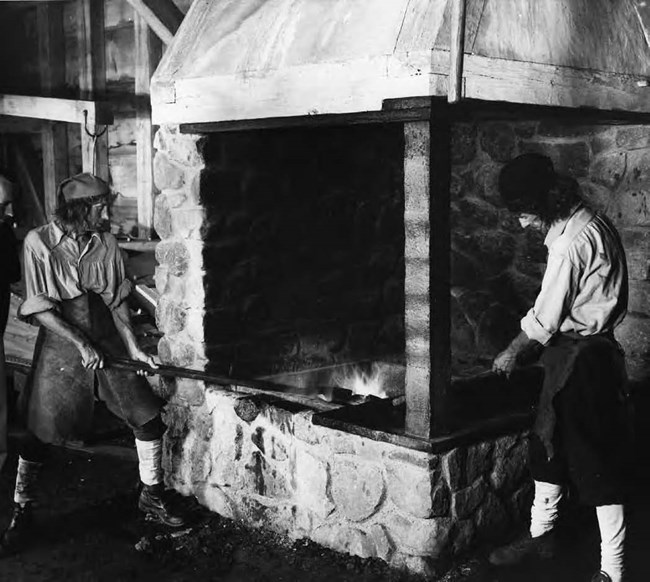Last updated: August 15, 2021
Article
Scottish Prisoners at the Iron Works

Photo courtesy Richard Merrill (Photograph 1220, 1954)
The Scots were soldiers who were defeated in the English Civil War at the Battle of Dunbar in 1650. They were captured by the English, taken from their homeland, and sent to Massachusetts Bay Colony to work as indentured servants for seven years. Some of the Scots who came to Massachusetts Bay Colony worked at the iron works. Other Scots were sold to different business in the colony, while still others stayed in prison in England.
The Scots who came to the iron works worked as wood cutters, colliers (charcoal makers), or unskilled laborers for the most part. They were placed in company housing and were given what they needed to live and work. They worked at the iron works to repay their debts from their voyage, food, shelter, medical care, and clothing. Some lived with skilled workers who taught them skills such as blacksmithing and carpentry.
Some Scots might have felt lucky to have a chance to work at the iron works rather than go to prison. However, the Scots were also far away from their families and their home in Scotland. Because they were prisoners of war, they could not bring their families with them to the new world. There were no women or children among them. They were not Puritans and had different religious beliefs. The Scots eventually worked off their indentures, but many would never make the journey back home to Scotland. Some eventually married, started new families, and assimilated into Puritan society.
